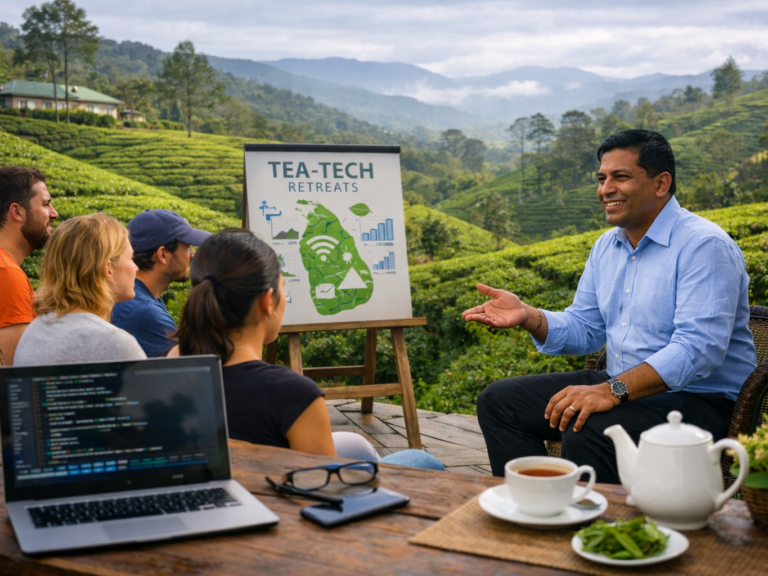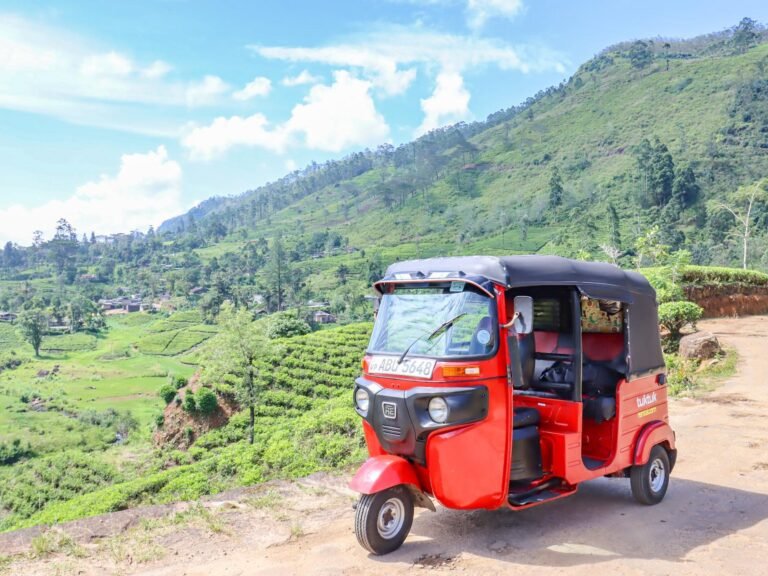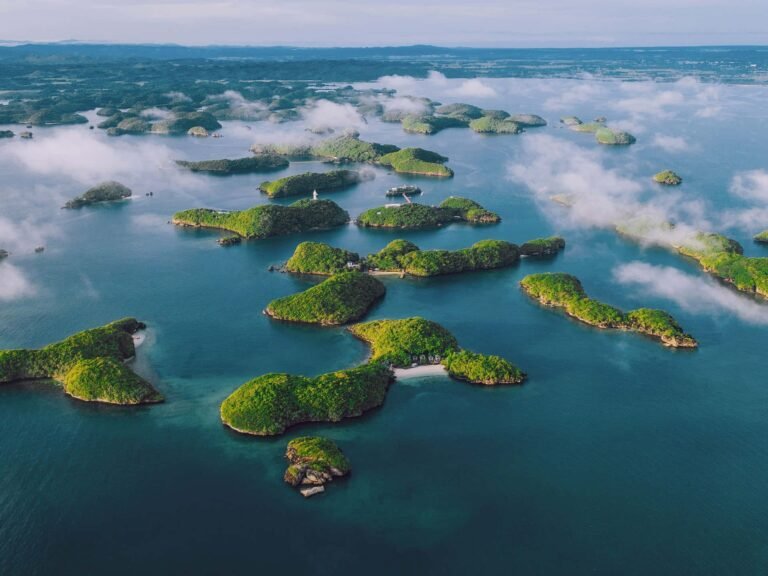Post-Pandemic Permanomads: Developing Sri Lanka as a Multi-Generational Family Digital Nomad Haven

Introduction
The COVID-19 pandemic fundamentally altered the global tourism and work landscape. Remote work, once a luxury, has now become mainstream, and the idea of “digital nomadism” has evolved into something more structured and long-term. Increasingly, families—not just solo travelers—are seeking destinations where they can live, work, and thrive together. This phenomenon, which I describe as “Permanomadism”, is no longer just about individuals with laptops on beaches but about multi-generational families seeking stable, long-stay ecosystems where education, healthcare, lifestyle, and community integration are central.
Sri Lanka, with its unique cultural heritage, robust yet affordable healthcare system, English-speaking population, natural beauty, and evolving digital infrastructure, has an opportunity to position itself as a multi-generational family digital nomad haven.
Global Context of Digital Nomadism
- According to Nomad List 2024, there are more than 40 million digital nomads worldwide, with annual spending estimated at USD 1 trillion.
- Countries such as Portugal, Spain, and Costa Rica have pioneered “digital nomad visas,” attracting tens of thousands of long-term residents annually.
- Families now constitute 15–20% of digital nomad households, with priorities shifting from nightlife and co-working cafés to schools, healthcare access, and safe environments.
Why Sri Lanka?
- Affordability – According to the Mercer Cost of Living Index 2024, Colombo remains 65% cheaper than Singapore and 50% cheaper than Dubai for expatriates.
- Healthcare Strength – Sri Lanka spends 3.8% of GDP on healthcare and offers free universal health coverage. Its maternal and child healthcare outcomes outperform many higher-income countries.
- Education Opportunities – The presence of international schools (e.g., British School, Lyceum, Gateway, Colombo International School) makes it easier for expatriate children to transition.
- Connectivity – With multiple submarine internet cables and 4G/5G expansion, Sri Lanka’s digital infrastructure is improving rapidly.
- Cultural Integration – A rich cultural heritage and English as a second language make communication seamless.
Case Studies of Global Models
- Portugal’s Madeira Island – A “Digital Nomad Village” established in 2021, hosting over 6,000 nomads annually, provides a model of how community-building enhances retention.
- Costa Rica – Introduced a two-year digital nomad visa, encouraging eco-conscious nomads. Families particularly value the “pura vida” lifestyle integrated with nature.
- Estonia’s e-Residency Program – Though not family-centric, Estonia’s innovation in digital governance shows how countries can build trust with mobile professionals.
- Thailand’s Sandbox Model – Initially a COVID-era tourism program, it evolved into long-term nomad-friendly ecosystems with international schools in Phuket attracting global families.
- Dubai – The Virtual Working Program allows families to relocate while maintaining overseas employment. Dubai recorded over 50,000 remote-working family relocations in 2023.
- Mauritius Premium Visa – Successfully attracted long-term residents, particularly retirees and families from Europe, positioning the island as a multi-generational retreat.
- Bali (Indonesia) – With co-living spaces, international schools, and healthcare hubs, Bali is now home to over 25,000 expat families.
Opportunities for Sri Lanka
- Digital Nomad Visa with Family Provisions A 1–3 year renewable visa program. Family-friendly packages including spouse and children. Access to international schools and private healthcare systems.
- Healthcare Integration Partnerships with Apollo, Lanka Hospitals, and Nawaloka. Wellness tourism integration (Ayurveda + modern medicine).
- Education Alignment Expansion of international school branches in Galle, Kandy, and Jaffna. Bilingual and IB curriculum support.
- Regional Hubs Beyond Colombo Southern Hub (Galle-Matara): Surfing, culture, schools. Hill Country Hub (Kandy-Nuwara Eliya): Cool climate, boarding schools. Eastern Hub (Arugam Bay-Trincomalee): Adventure tourism + co-living.
- Technology Support Incentivizing co-working operators to expand. Subsidized fiber optic for rural hubs.
- Community & Cultural Immersion Village homestays tailored to families. Language learning and cultural exchange programs.
Risks & Mitigation
- Over-tourism: Balanced zoning and crowd-dispersion strategies (UNESCO site protections).
- Inequality: Ensuring local communities benefit via skills transfer and fair taxation.
- Environmental Strain: Green building policies, renewable energy mandates for co-living hubs.
Recommendations
- Policy: Introduce a Sri Lanka Family Digital Nomad Visa.
- Public-Private Partnership: Engage tourism boards, ICTA, health and education providers.
- Branding: Position Sri Lanka as “The Island of Permanomads” in global campaigns.
- Pilot Projects: Start with 500 families in Galle/Kandy by 2026.
Conclusion
Sri Lanka stands at a unique crossroads. By proactively designing an ecosystem that supports multi-generational digital nomad families, the country can move beyond short-term tourism to foster sustainable long-stay economies. This is not only about dollars and visas—it is about embedding Sri Lanka in the global conversation on the future of work, family well-being, and sustainable tourism.
With careful planning, Sri Lanka can become a haven for Permanomads, where families live not just as visitors but as valued, contributing members of our cultural and economic fabric.
Disclaimer
This article has been authored and published in good faith by Dr. Dharshana Weerakoon, DBA (USA), based on publicly available data from cited national and international sources (e.g., Sri Lanka Tourism Development Authority, Central Bank of Sri Lanka, international tourism monitors, conservation bodies), decades of professional experience across multiple continents, and ongoing industry insight. It is intended solely for educational, journalistic, and public awareness purposes to stimulate discussion on sustainable tourism models. The author accepts no responsibility for any misinterpretation, adaptation, or misuse of the content. Views expressed are entirely personal and analytical, and do not constitute legal, financial, or investment advice. This article and the proposed model are designed to comply fully with Sri Lankan law, including the Intellectual Property Act No. 52 of 1979 (regarding artisan rights and design ownership), the ICCPR Act No. 56 of 2007 (ensuring non-discrimination and dignity), and relevant data privacy and ethical standards.
✍ Authored independently and organically through lived professional expertise—not AI-generated.
Further Reading: https://www.linkedin.com/newsletters/outside-of-education-7046073343568977920/
Additional Reading: https://gray-magpie-132137.hostingersite.com/sri-lankas-first-guaranteed-glowing-lagoon-night-tours/






